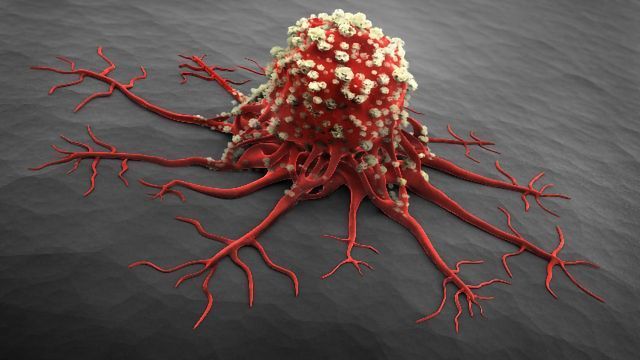Trending News
News

News
Blood Test Shows Promise for Early Detection of Acute Heart Transplant Rejection
Researchers have developed a blood test that could make it possible for doctors to detect — then quickly prevent or slow down — acute heart transplant rejection, a potentially deadly condition that occurs in the early months after a patient has received a donor heart.

News
Cardiac Protein Causes Different Types of Heart Failure
Researchers show that in the heart, one molecule, Krϋppel-like factor (KLF)-5, single-handedly fuels both the generation of oxidizing molecules and the accumulation of toxic lipids known as ceramides in the heart, exacerbating heart dysfunction.

News
How Pathogens Evade the Immune System
Researchers have uncovered a mechanism that enables the parasite that causes sleeping sickness in humans to escape the attention of the immune system. The finding may also be relevant to other infectious diseases.

News
Protein Allows Salmonella To Swim Straight
Salmonella use a “run-and-tumble” method of movement, including random direction changes, but how they move within the gut is not well understood. Now scientists believe they have identified a protein, McpC, that allows the bacteria to swim straight when they are ready to infect cells.

News
Exploring Metabolic Features of Recurrent Major Depressive Disorder
Researchers at University of California San Diego School of Medicine, in collaboration with Dutch scientists, have found that certain metabolites — small molecules produced by the process of metabolism — may be predictive indicators for persons at risk for recurrent major depressive disorder.

News
Nanoparticle Vaccine Technology Introduces Immune System to a Variety of Different Coronaviruses
A Caltech team has designed a protein-based 60-subunit nanoparticle onto which pieces of up to eight different types of coronavirus have been attached. When injected into mice, this vaccine induces the production of antibodies that react to a variety of different coronaviruses--including similar viruses that were not presented on the nanoparticle.

News
Gut Microbes May Help and Hinder Anorexia Sufferers
Anorexia is a debilitating eating disorder, and was long thought to be purely psychological. New research is challenging this by revealing that gut microbes may have a significant role in anorexia. A recent review examines the evidence that gut microbes can contribute to anorexia and may provide a new method to treat it.

News
Investigating the Role of a Key Metabolic Pathway in Melanoma
Disrupting the metabolic pathway involved in the initiation, growth and progression of melanoma could lead to the development of new treatments for melanoma, according to new research published in PLoS One.

News
Enzyme in Tumor Cells Could Be Used To Monitor Cancer Treatment
Researchers are studying the possibility of inhibiting a protein known as low molecular weight protein tyrosine phosphatase (LMWPTP) to create novel opportunities for monitoring and treatment of cancer and other diseases.

News
A Pilot Trial of High-Dose Vitamin C in COVID-19 Patients
The results of a pilot trial investigating the effect of high-dose intravenous vitamin C (HDIVC) for severe COVID-19 have been published in Annals of Intensive Care. The study findings are impacted by a reduced sample size, however the data obtained suggests that vitamin C may help to improve oxygenation in critically ill COVID-19 patients.
Advertisement




